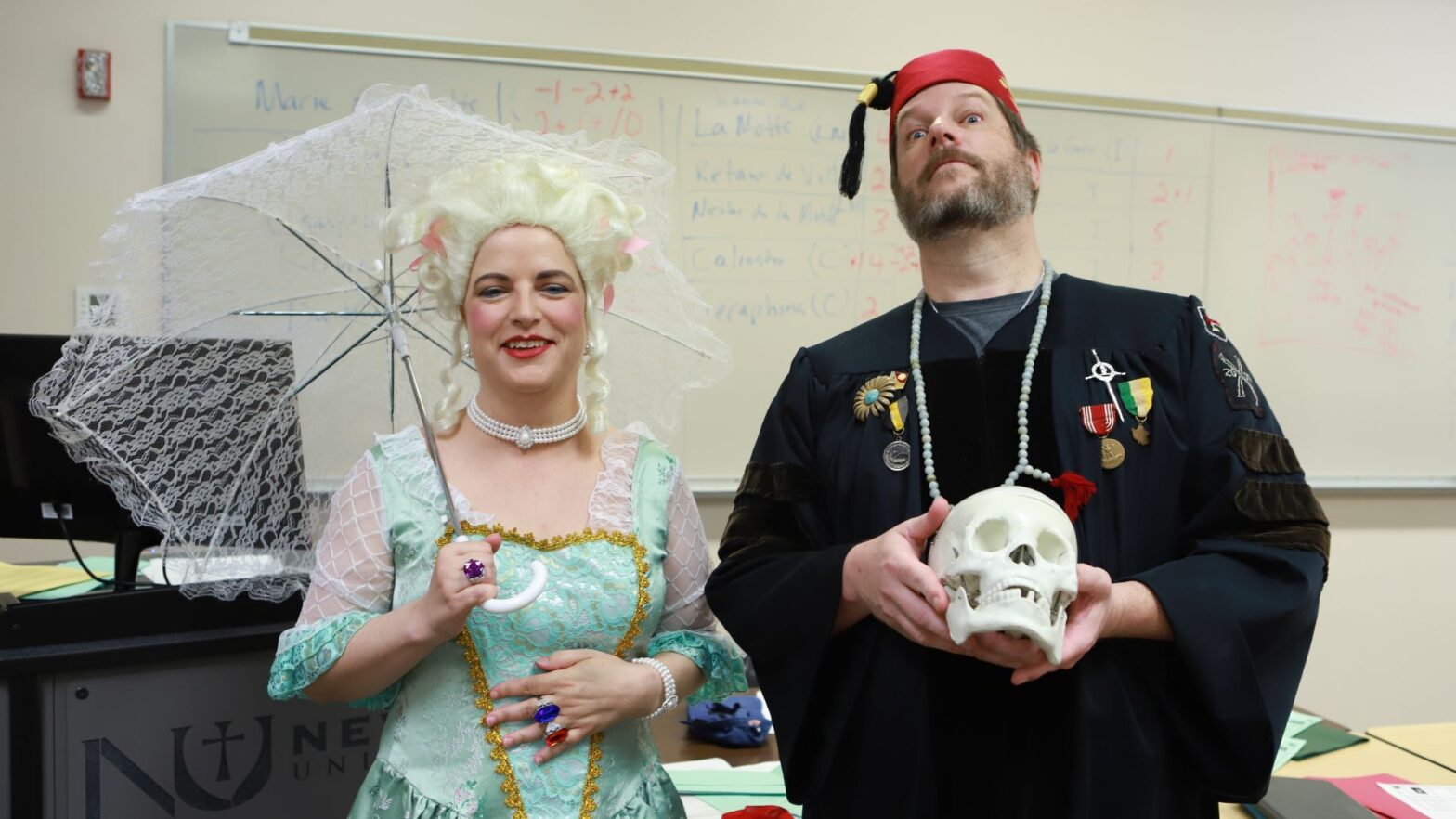To better understand a different perspective, some say you must “walk a mile in another’s shoes.” When it comes to understanding history, Reacting to the Past games allow professors and students to do just that.
Nearly 40 faculty members from across the U.S. traveled to Newman University to participate in the annual Reacting to the Past Game Development Conference July 11-13.
Using Reacting to the Past in a classroom setting
Reacting to the Past consists of active-learning role-playing games designed for higher education. Using the roles and historical context they are given, participants must make decisions, problem-solve, collaborate and debate on important issues.
“The idea behind this conference is that you literally bring it to your craft so that we can help you make it better,” said Jonathan Truitt, Ph.D., of Central Michigan University. Truitt is a professor of Latin American history, co-chair of the Center for Learning through games and simulations and executive director of Central Michigan University Press.
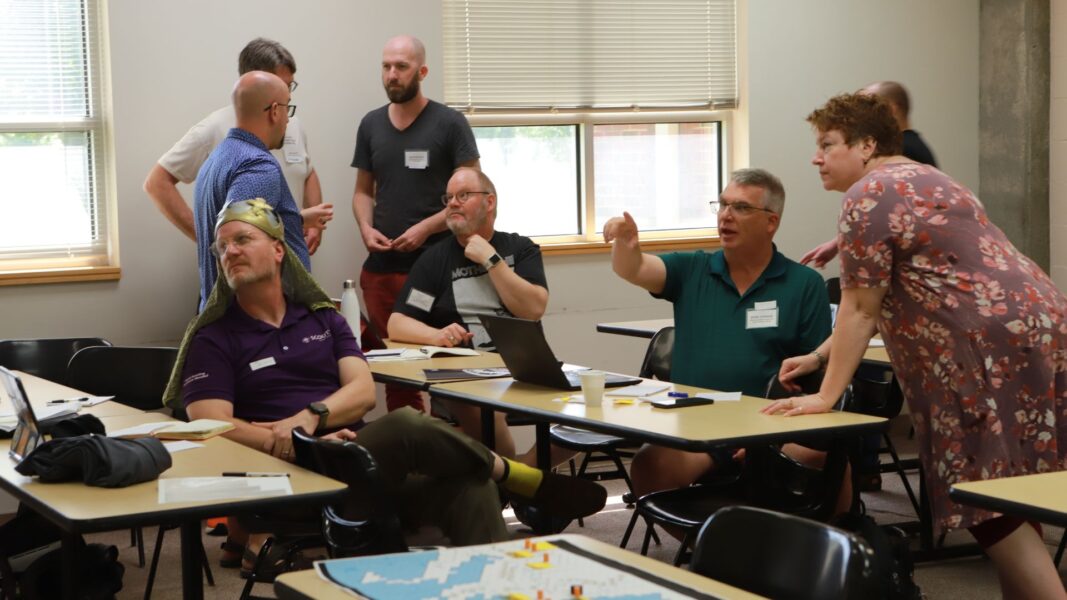
While most conferences involve a speaker who leads the conversation, Truitt explained, the game development conference welcomes professors to test and play their designed games in a collaborative setting. Professors collect feedback and apply what they’ve learned to student games in their own classrooms.
Michaele Ferguson, Ph.D., associate professor of political science at the University of Colorado in Boulder, has experienced between 10-20 reacting game development conferences and finds each one valuable for her work with students.
“As a game designer, it helps me to think about how I am writing my own games,” Ferguson said. “But I also think it’s really important to play the games. When I’m running them in my class, it’s easy to forget how stressful it is to ask a student to take on a particular role.”
Each role-play scenario gives students limited information to work from. It’s up to them to improvise as their characters to bring the historical context to life.
“We’re not acting and we’re not reading from a script, so remembering what that experience is like is essential to using the games in the classroom so that I can identify better with my students,” she said.
Remembering what that experience is like is essential to using the games in the classroom so that I can identify better with my students.
Michaele Ferguson, Ph.D., associate professor of political science at the University of Colorado in Boulder in Colorado
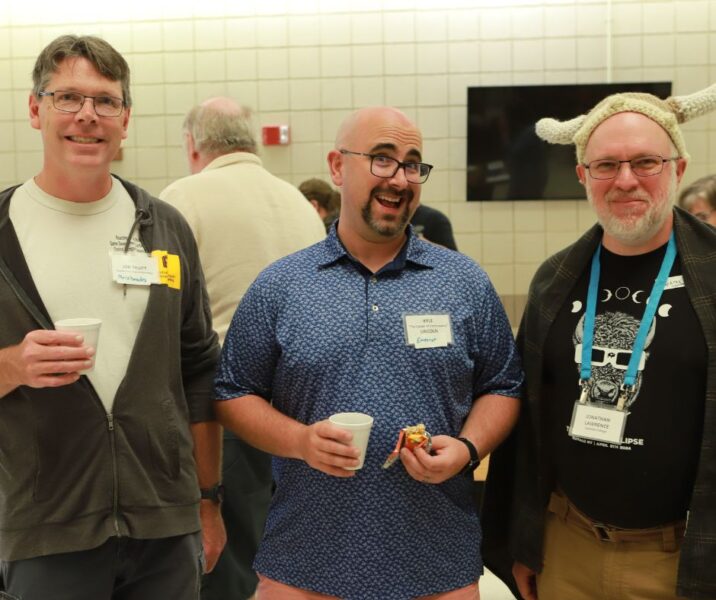
Kyle Lincoln, Ph.D., of Southeastern Oklahoma State University loves “how unexpected and yet how amazing it can be” at the conference. Lincoln serves as the assistant professor of pre-modern European history and interdisciplinary humanities and the director of study abroad.
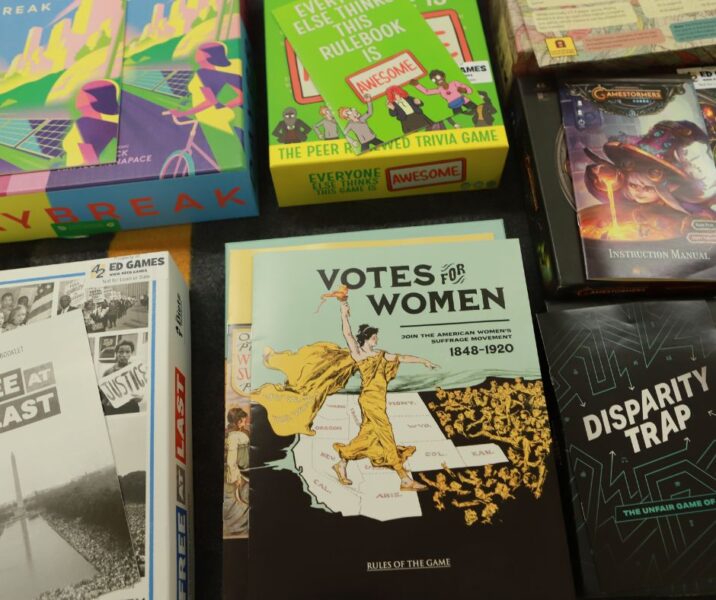
“It’s a collegial effort where we can take a first or third draft of a project and help determine where the themes and stress points are,” Lincoln said. “If you write the question to the person who published the game, most of the time you’re going to get an answer very quickly, or you’ll get other people who said, ‘I’ve worked with the same thing and here’s what I’ve done.’ It’s just a completely different atmosphere.”
For some, the conference even helps them publish their games to reach a broader audience of college students and professionals.
“The last two years of the (conference) helped me get my game published with the feedback I received at the event,” said Jonathan Lawrence, Ph.D., associate professor of religious studies and theology at Canisius University in Buffalo, New York.
“I’m looking forward to helping support other authors, but also get ideas — even with the non-reacting games that we play at night — for things that can be incorporated into future projects,” he added.
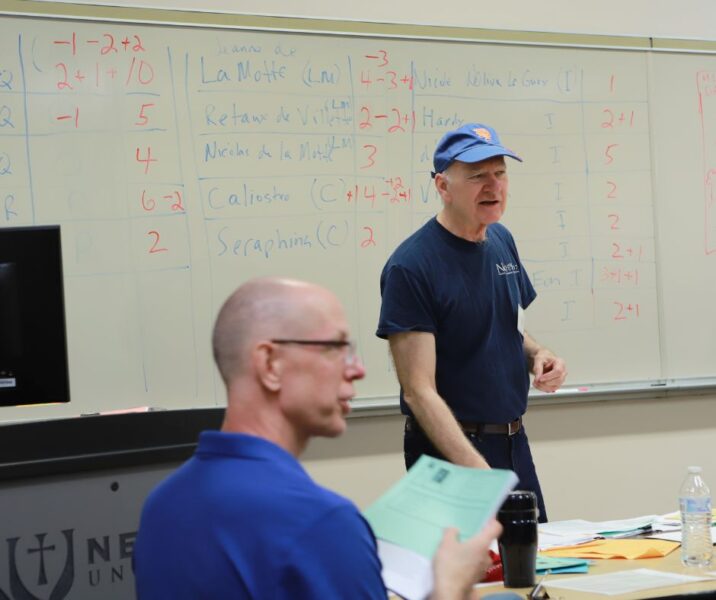
Host your event
Newman University offers three venues for public rental — making a perfect location for your upcoming speaking event, wedding, or social.
